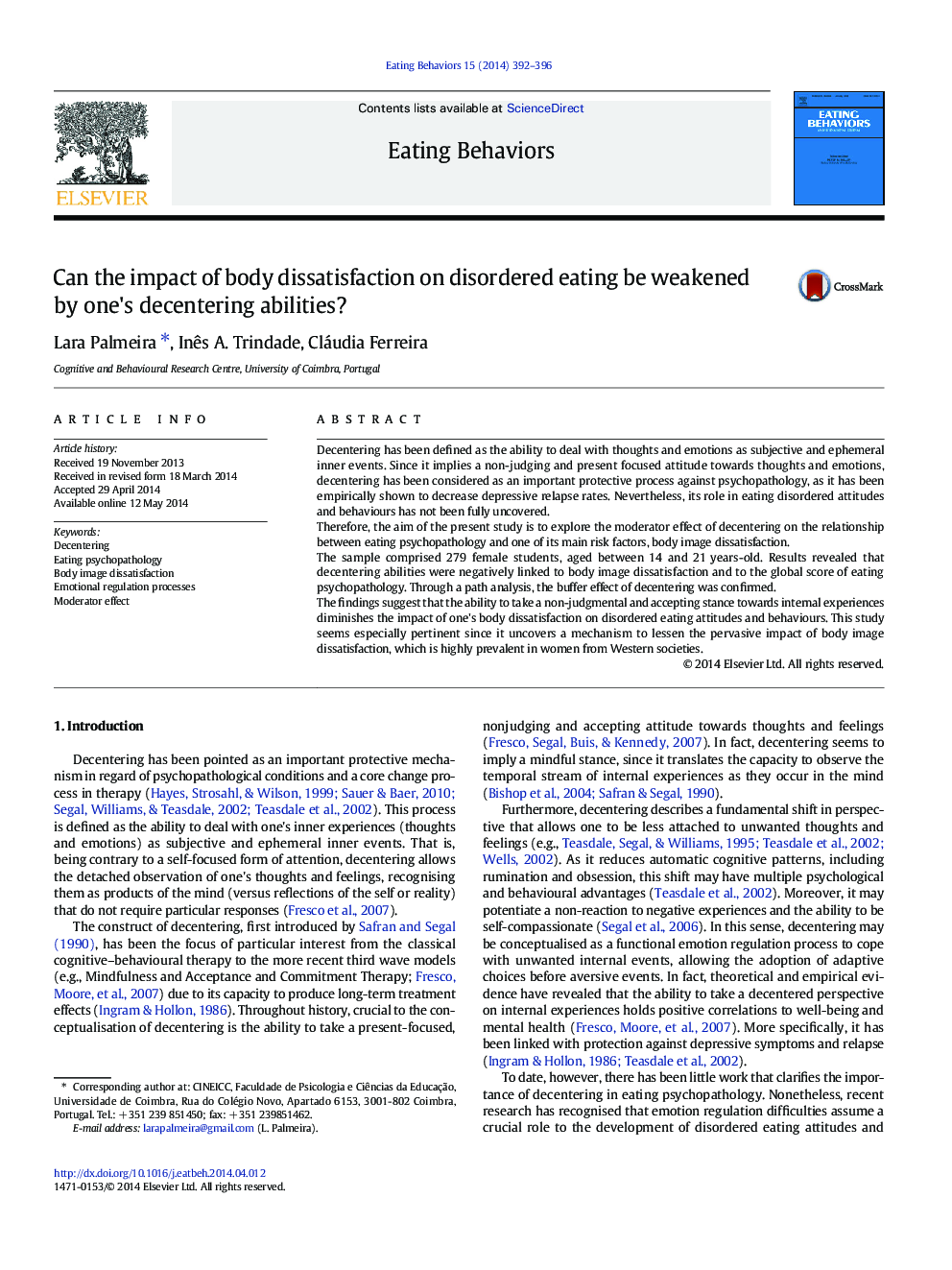| Article ID | Journal | Published Year | Pages | File Type |
|---|---|---|---|---|
| 906355 | Eating Behaviors | 2014 | 5 Pages |
•The role of decentering in eating disordered attitudes and behaviours was explored.•Decentering was negatively linked to body dissatisfaction and eating psychopathology.•The moderator effect of decentering was confirmed.•Decentering weakens the impact of body dissatisfaction on disordered eating.
Decentering has been defined as the ability to deal with thoughts and emotions as subjective and ephemeral inner events. Since it implies a non-judging and present focused attitude towards thoughts and emotions, decentering has been considered as an important protective process against psychopathology, as it has been empirically shown to decrease depressive relapse rates. Nevertheless, its role in eating disordered attitudes and behaviours has not been fully uncovered.Therefore, the aim of the present study is to explore the moderator effect of decentering on the relationship between eating psychopathology and one of its main risk factors, body image dissatisfaction.The sample comprised 279 female students, aged between 14 and 21 years-old. Results revealed that decentering abilities were negatively linked to body image dissatisfaction and to the global score of eating psychopathology. Through a path analysis, the buffer effect of decentering was confirmed.The findings suggest that the ability to take a non-judgmental and accepting stance towards internal experiences diminishes the impact of one's body dissatisfaction on disordered eating attitudes and behaviours. This study seems especially pertinent since it uncovers a mechanism to lessen the pervasive impact of body image dissatisfaction, which is highly prevalent in women from Western societies.
